|
This current COVID-19 crisis has shaken up the end of the semester even more than most students could have even imagined. Since my university went online through the rest of the semester, so much has changed: events and programs that were being planned since last school year have been canceled; fun outdoor adventures with the onset of spring are postponed; classes have transitioned to completely online settings. The way I would best sum up this time is unexpected significant change. But this change can lead to many ways of unexpected growth while adjusting to this new normal for the foreseeable future.
These couple of weeks adjusting to the world of online classes has allowed me to take some time and reflect on the past, present, and future. In college, time seems to fly and changes that occur over time sometimes just seem to pop up. Yet in these weeks of change, time hasn’t been flying by, and things aren’t happening as smoothly, but that’s okay – it’s perfectly fine if adjusting to this new normal takes longer than it may have at college. In my reflecting, a few thoughts stuck with me as particularly helpful in this unexpected journey:
From the time this COVID-19 pandemic first began to alter life in February, one particular prayer has been an unending source of peace for me. It is called the Serenity Prayer: “God, grant me the serenity to accept the things I cannot change, the courage to change the things I can, and the wisdom to know the difference.” Jonathan Harrison is a Program Associate for the Catholic Apostolate Center and a student at The Catholic University of America studying biochemistry and theology with a certificate in pastoral ministry.
0 Comments
On March 7, my husband threw a surprise party to celebrate my 30th birthday. That would be the last time I would physically spend with many dear friends for at least a month. It was at the beginning stages of the coronavirus pandemic when the United States seemed to just barely be grasping what was going on across the Atlantic. We were aware but unafraid. The virus was like the flu. It only affected the elderly and those with compromised immune systems. It wasn’t a big deal. We would be fine. But around that time, my family began to take the notions of staying home, social distancing, and self-quarantining seriously. Each day brought more news. So we spent time outside. We tried to stay 6 ft apart. We bought a few more groceries than usual. We began to lay low. Almost three weeks later, I write from home, having gone “out” less times than I can count on my fingers apart from family walks, romps to open fields, or our backyard. No grocery stores. No movie theaters. No social events. No playgrounds. No libraries. No stores. No Masses. I haven’t had to “try” to make Lent this year somber or serious. Every day is a fast from something I deemed important to my life: a fast from physical friendship; a fast from community in the way I’m used to living it; a fast from outings, from the sheer independence of being able to step out of my house and go where I want to go when I want to. This fasting has been humbling. Prayer is the rhythm to my day. It is the breath of my days. The heartbeat. I watch online daily Masses or reflections on the Scriptures. I pray the rosary by myself or with my husband and children. I sing the Divine Mercy chaplet. I continue a novena. I make a spiritual communion with tears in my eyes. I utter supplications for others throughout the day. I offer my fasts—both the voluntary and involuntary—for our world. At the beginning of this Lenten journey, I shared how I thirsted to emerge from spiritual mediocrity. Now I thirst for God himself. I yearn to join the Body of Christ once again in the sacraments and receive him at the Eucharistic table. I live Paul’s exhortation to pray without ceasing in a profound way. And yet God has been so good. And peace prevails in my heart. I have so much to be thankful for: continued jobs and paychecks, long days of sunshine and warm weather, our health, food on our plates, a roof over our heads, snuggles with my children, reading books in our indoor tent, video calls with friends and family all over the country. In spite of everything, we are together. In spite of everything, God is here. In spite of everything, there is always hope. Let us continue to “rend our hearts” this Lent by turning to God and giving him everything we are feeling right now: exhaustion, confusion, anxiety, disillusionment, anger, despair, or fear. We can approach the one who became a vulnerable child for us and give him our own insecurities and vulnerabilities. At the manger, we will be met with his never-ending love. In his homily for the fourth Sunday of Lent, Fr. Mike Schmitz noted that God did not make an unbreakable world. Though he created perfectly, he instilled in mankind the ability to have free will—the ability to break our relationship with God by introducing sin into the human condition. Death, pain, suffering, temptation—all is the result of sin. This pandemic is more evidence of this truth. What matters, however, in the midst of our suffering, is that God does not abandon us to it—nor has he ever. Scripture recounts the story of God’s unfailing love for humanity since the Fall—a story of salvation that continues personally with each of us today. God does not promise fulfillment on earth, perfect joy, blessing, and comfort. He promises the cross, daily. But he also promises us that he will be with us always—even to the end of time—that he came to give life in abundance, that we can be transfigured, and that there is resurrection. He invites us to complete satisfaction and joy with him in Heaven for eternity. And in the meantime, as we continue on our own personal journeys in this “vale of tears,” he remains waiting for us at the well. Inviting us on the shore. Looking for our return on the horizon. Feeding us at the table. He remains pouring out all for us on the Cross. He remains. As we continue to navigate this Lenten season, the coronavirus pandemic, and the approach of Easter, let us go to him with humble hearts. “Let us allow ourselves to be loved, so that we can give love in return. Let us allow ourselves to stand up and walk towards Easter. Then we will experience the joy of discovering how God raises us up from our ashes.” -Pope Francis (Ash Wednesday Homily, 2020) A month ago, I thought I would be balancing returning back from a service immersion trip and student leadership interviews. Today I sit in my makeshift home office preparing for my next Zoom call, trying to keep in check my own anxieties while still ministering to my students. To be honest, the first week was not easy, and I have still not mastered ministry from home and social distancing. As the days continue, I have progressively realized my need to change my mindset of survival to finding peace, stability, and hope. I went to Thomas Merton and St. Teresa of Avila, my two go to’s when needing to be reminded of where to find God. As I read the words of this Trappist monk and Carmelite nun, it dawned on me that in midst of darkness, fear, and chaos, I have been given an opportunity to create an inner monastery. The lives of these monastic friends of mine shed light on three aspects that I trust and can incorporate into my social distanced day-to-day in order to give me peace and calm my anxieties.
I invite you to share in the wisdom of the monastics and find the opportunity during these challenging times to create within our homes and families an inner monastery. Fears, sickness and hardship won’t be removed, but the insights of our brothers and sisters who have lived this life before us can help us to “recognize the possibilities and challenges offered by the present moment, and to embrace them with courage, faith and hope.” If you find it helpful, here is my Inner Monastery Routine. Finding balance will look different for each person, so take what works for you and make adjustments to fit your needs.
I have always enjoyed social media— so much so that I have the opportunity to do it professionally! By nature of my employment, I spend a lot of time on social media. During this unprecedented time of COVID-19, I have found a lot of hope, inspiration, and helpful information online. I must also admit that I have felt overwhelmed at times after constantly seeing COVID-19 related posts. I appreciate the acknowledgement of what’s going on globally and the virus-related posts, but I also appreciate those that are posting their regular content so that we can maintain some semblance of normalcy.
Last week (the first week of COVID-19 self-quarantine in the United States), I spent way too much time on my phone. Between losing the structure of being in the office and just getting caught up in scrolling, I spent a considerable amount of time on social media. By Wednesday, I noticed that it was taking a toll on me. I felt over-stimulated and overwhelmed. I felt like I couldn’t concentrate on anything because my mind was filled with so much noise. This week, I will be implementing a few things in order to maintain a healthy relationship with social media:
I am hoping that implementing the practices I mentioned above allows me to enjoy social media more than leaving me feeling overwhelmed by it during this time. There are many beautiful aspects of social media that can help me feel connected. I love seeing what my loved ones are up to. I love seeing how my fellow Catholics are building up the Church during this challenging time. I love to see what my favorite organizations are doing to aid COVID-19 efforts. I want to scroll through my social media accounts and remember why I love them rather than feeling overstimulated and too anxious to enjoy them. Click Here to Download this Blog as a PDF! 3/20/2020 In This Together: A Resource Guide for Families During Coronavirus Quarantine | COVID-19 ResourceRead NowTo all the parents home with their children, who are looking for creative, easy, or fun ways to spend the day, here are some great options to try for spiritual, mental, and physical health! Set a routine. It is important to establish consistency and keep kids on a structure like they are during a school day. For older children, have them collaborate with you as you create a schedule to allow for some influence on their day. It allows for predictability in the day, and children knowing what is expected of them is crucial to the well-being and peace of all in the family. Below is a schedule example. This can be used as a starting place for your family. Feel free to move things around or dedicate your time differently. What’s important is maintaining a routine that works for your family! Example:
Focus on gratitude. With many feeling anxious and having to deal with a lot that is so unknown, having a grateful heart can mean a world of difference for your well-being and that of your family. Have your child write thank-you-notes to mail carriers, restaurant workers, grocery store employees, and members of the family. Or, start the day by finding 3 things to be grateful for, then end the day like that too. Talk about this with your child and share your gratitude with them.
Prayer. There is nothing more powerful than prayer, and prayer as a family is crucial during this time at home together. Make time. Take time. Add it to a daily routine. In addition to saying prayers you may know by rote, consider reading the Daily Readings from USCCB to read the Word together in prayer. Play! For young children, older teens, and everyone in between, play is crucial. For older children that may mean down-time or free time to decompress, but for young children in elementary school this is so important for development. Playing together, but also playing independently helps support their creativity. As a parent, also take some time to think of ways you can “play”—not only with your children, but with your spouse or on your own. Make sure to come up with fun activities that are life-giving for you and your spouse: board games, a puzzle, baking, etc. Pretend and make believe. “Boredom breeds creativity” I was once told, and I couldn’t agree more! When children are given a chance to imagine and pretend away from distractions and technology they will think up all kinds of incredible things. As a parent, you may need to guide or inspire some pretend or make-believe with prompts or guidelines until your kids seem ready to take-off on their own. Even giving your child a difficult or challenging task and saying, “figure it out” may help for older kids who need to problem-solve. But here are some ways to get started:
Exercise. For children of all ages and adults too, exercise is so important. Although we must consider social distancing, getting outside and even just taking a walk is more crucial than ever as we are in our homes all day long. If you don’t have a yard to play in, try walking to the closest field or park to catch a ball or ride a bike around the neighborhood. If you cannot get outside, there is plenty to do inside. YouTube has workouts for children and adults, and there are workouts on Netflix and other streaming services to get you started. Write letters. This is a nice thing to do at all ages and levels of writing abilities, young ones can draw pictures and write what they can, while older kids could tell someone all about their latest adventure at home. Write to grandparents, relatives, elderly folks in nursing homes, neighbors, and friends from school who are also at home. It’s amazing how good someone may feel receiving a note or letter, knowing your child was thinking of them. Call someone, FaceTime, or video chat with someone. We are blessed in this digital age to have technology that can still keep us “together.” Calling friends, family, and loved ones, either on the phone or using a video chat application, maintains and strengthens our relationships with people we may not be able to see or visit right now. Read a book. Have your child help you create a booklist of 50 or 100 books and see how many they can read, then have a fun prize like baking cookies together or extra down-time be the reward. Activity pages made by teachers. For kids who are out of school altogether, look for materials online to keep kids up to speed on math skills, reading activities, and everything in between. With schools shut down, there is plenty out there to find! Make your own studying tools. Don’t forget that anyone (including the student) can make flash cards for addition, subtraction, multiplication, and division - as long as you have paper and something to write with! Some drills you could practice:
Fine motor development. Play with Play Doh (or make your own). Squeeze items with tweezers. Count and play with beads or buttons. Bake and roll out dough, ball up cookies, or knead pizza dough. We are living in unprecedented times which can add to the stress level of family life. We invite you during this pandemic to see this as a blessed time to rekindle relationships within your families and communities through prayer, play, and creativity and hope these resources will prove fruitful for you as we continue to navigate this time. Click here to visit our COVID-19 Resource Page Click Here to Download this Post as a PDF! Today we celebrate the feast of St. John Paul II, a saint of our times! He is remembered for many things, including his passion for the arts, outdoors, youth, and families. St. John Paul II also had a deep devotion to Mary, and in what I know of St. John Paul II’s life and loves, we can bring no greater joy in celebrating his sainthood than by honoring our blessed Mother. St. John Paul II’s favorite prayer was the Rosary, and I too, have developed a fondness for praying it. I stumbled upon a recording a couple of years ago in my desire to pray it intentionally. As I would listen and pray along in my car every morning before work, I discovered a love for each mystery and the fruit they bear, as like Mary, I “pondered them in [my] heart” (Luke 2:19, 51). The mysteries of the Rosary invite us to contemplate the life of Christ through the memories of Mary. St. John Paul II says remembering these mysteries “were to be the ‘rosary’ which she recited uninterruptedly throughout her earthly life” (Rosarium Virginis Mariae, §11). In this remembering, the account of the Gospel from the eyes of Mary are timeless, “not only belong[ing] to ‘yesterday’; they are also a part of the ‘today’ of salvation” (John Paul II, Rosarium Virginis Mariae, §13). In this, St. John Paul II reminds us that the Rosary is an invitation to participate in Christ’s divine life, and it is relevant across time to the faithful of all ages. Recently my routine for praying the Rosary has changed as I am now on maternity leave and spend the day taking care of my newborn daughter. Instead of rushing to get my two-year-old son into the car and dropped off at daycare before work and enjoying my prayer time alone in the car, we have the opportunity to hop in the stroller and walk to daycare, spending time together saying hi to neighbors and marveling at the changing of seasons before he starts his school day. Despite the enjoyment both my son and I get from these walks, in the transition of summer at home with mommy to school, and the transition from being an only child to living the realities of being a big brother at only two years old, for quite a few weeks my son was not happy about leaving home for the day. Although my son loves school, he was hating drop off, and his anxiety (and let’s be honest, mine, too) crept in the closer we got to school each day. One morning as I was trying to get him excited for the day, I asked him if he wanted to pray the Rosary with me, telling him it always brings me calm and comfort, and he said yes. I told him I would let my recording play, and I would tell him the stories of each mystery. Thus began a new routine for us each morning. As the Joyful Mysteries play, I tell him about how much Mary loved God that she said yes to being Jesus’ Mommy, and how we pray that we can love God like her and say yes to Him when he needs us to. When the Luminous Mysteries play, I tell him about Jesus’ first miracle, turning water into wine at the Wedding at Cana, and that through Mary, she will lead us to Jesus and help us see the miracles he’s performing in our own lives. In praying the Sorrowful Mysteries, I am very closely brought to tears as I think about explaining death to a toddler, and moved by Jesus’ sacrifice for us, telling my son that no sin stops Christ’s love for us. We pray to be good people and follow the will of God. And when we pray the Glorious Mysteries, I get to teach my son about the glories of the Holy Spirit and Heaven, praying for our ultimate happiness with Jesus, Mary, and all the saints. In praying these, I am in awe of how parenting is transforming my heart, teaching me to be like a little child, loving Jesus without abandon like my son does. By the time we’ve prayed our Rosary for the day, we’ve arrived at daycare. Filled with his spunky confidence and newfound graces, my son hops out of his stroller and says “let me give you a kiss for the road,” and sends me off on my way. Each day, he runs off to the playground to play with his friends, and I am amazed by the graces we’ve both received by praying the Rosary together. In his great love for both the Rosary and the family, St. John Paul II called families to pray this prayer together, acknowledging how its graces unite the family: Individual family members, in turning their eyes towards Jesus, also regain the ability to look one another in the eye, to communicate, to show solidarity, to forgive one another and to see their covenant of love renewed in the Spirit of God. Many of the problems facing contemporary families, especially in economically developed societies, result from their increasing difficulty in communicating. Families seldom manage to come together, and the rare occasions when they do are often taken up with watching television. To return to the recitation of the family Rosary means filling daily life with very different images, images of the mystery of salvation: the image of the Redeemer, the image of his most Blessed Mother. The family that recites the Rosary together reproduces something of the atmosphere of the household of Nazareth: its members place Jesus at the centre, they share his joys and sorrows, they place their needs and their plans in his hands, they draw from him the hope and the strength to go on. (Rosarium Virginis Mariae, §41) From daycare drop-offs to contemplating our family’s deepest sorrows and joys, we too as a family have found this hope and strength of the Rosary to be true and timeless. On this Feast of St. John Paull II, I invite you to honor him and our Blessed Mother by taking the time to pray the Rosary, finding twenty minutes of your time to devote to contemplating the face of Jesus. St. John Paul said, “a prayer so easy and yet so rich truly deserves to be rediscovered by the Christian community… I look to all of you, brothers and sisters of every state of life, to you, Christian families, to you, the sick and elderly, and to you, young people: confidently take up the Rosary once again. Rediscover the Rosary in the light of Scripture, in harmony with the Liturgy, and in the context of your daily lives” (Rosarium Virginis Mariae, §43). Know of my unending prayers for you as you begin this rediscovery of the Rosary for yourself, as with Mary, you too ponder these mysteries in your heart and recognize their fruits in your life. St. John Paul II, pray for us! Our Lady of the Rosary, pray for us! There’s something wonderfully intimate about entering an empty chapel or secluded church and embracing it for personal prayers. Our Lord continuously invites each of us to set aside our daily activities and distractions to spend some time gazing, discerning, and listening to Him who knows each of us better than we could ever understand ourselves. The ancient promise of Christ to “Come to me, all you that are weary and are carrying heavy burdens, and I will give you rest” assures us of the great love freely offered to us when we recall we are always in God’s holy presence. In doing so, the troubles and challenges we face in the world are trivialized and surrendered to God’s holy will so that our focus can be firmly fixed upon worshipping and honoring the One who calls us to Himself.
Whether it was in a parish church during the day, the school chapel in between classes, or even the private chapel of a religious community, my experiences of being able to utilize the simple intimacy and quiet of the moment offered me peace and sanctuary from the world. Of course, the Almighty is not restricted to the tabernacle of a church; His presence is infinite and forever available to us. There is, however, something affirming about entering into a space conducive to prayer and spirituality. The design and furnishing of a sacred space can draw our senses into an experience to better appreciate God’s presence in our lives. The light from outside may reflect colored light from stained glass windows upon the wall, the smell of candles or incense being burned convey that space is specially oriented to a higher purpose than what you just stepped out of, and the silence and lack of technology, advertising, or electronic distractions enable you to be more aware of your surroundings as you seek to hear God speaking to you. Encounters with the living God are not typically a Burning Bush or Annunciation experience; recall that the prophet Elijah sought to encounter God on Mount Horeb and found Him in the “sheer silence” rather than a strong wind, fire, or earthquake. We are all aware of the daily bombardment of digital content and of the professional, social, or academic obligations and expectations we face. They compete for our time and attention, can wear us down in routines, and force us to prioritize what is important for us to achieve. In our busy lives, we must actively choose to answer God’s constant and gentle call to “Abide in me as I abide in you.” He pours out His love for us freely, even when we are not always actively seeking Him or discerning His will for us. The Christian journey, then, is one of encounter and service; the love God extends to us is to be shared and offered to our neighbors, the marginalized, and even—especially—enemies. No matter our vocation in this life, our ultimate goal must be Heaven in the next. The saints are excellent role models in embracing the love of Christ and committing their lives to bringing that love to others. And while there is something beautiful about being the only person before the Lord in prayer and adoration, there is an even greater joy in bringing others to share in the experience and to worship God together. We do not walk the Christian way alone. As a wise friend of mine observed: "[W]e have to remember that the journey to heaven is not a solo trek. You seek to bring everyone with you. If one person falls, you travel to him or her, and help them get up, and you carry along together towards the destination. This is what God has entrusted us to do, to reveal such love as His love. Within our families, jobs, school, or wherever God calls us to be, we must give everything of ourselves in bringing others on the adventure, and helping them endure. Think of the image of exhaustively falling down on God’s doorstep after the journey is over. You look back, and see no one, because the ones traveling with you have gone inside already.[1]" [1] Joseph Cuda (lecture, Knights of Columbus Council #9542 business meeting, Washington, DC, November 3, 2013). http://knights.cua.edu/res/docs/Knights-Lecture-5-November-3-2013.pdf O God, Thou art my God, I seek Thee, my soul thirsts for Thee; my flesh faints for Thee, as in a dry and weary land where no water is. -Psalm 63:1 There are seasons in the spiritual life in which you feel parched, as if you’re wandering the desert without refreshment. Silent reflection is filled with distraction. Prayer seems awkward, difficult, or boring. Your heart feels lifeless. Lately, despite my attempts to find escape, this sums up my prayer experience. It doesn’t matter that I infuse my days with the Mass readings, a Rosary, Catholic podcasts, or spiritual books. Right now, it seems so much easier to turn on a show or scroll through social media than to pray. Any time I resolve to do the latter, all the things I need to do bombard my mind, or the texts and notifications come in streaming. At Mass, I hear the beautiful words of Scripture and the homily but feel hollow in the pew. Am I a bad Catholic? Is something wrong? During times like these, many people of faith get disheartened. They think they have done something wrong in the spiritual life, that God has abandoned them, or that their faith must not be relevant anymore. But all people of faith will experience this to some degree at one point or another! It is often hard to trudge through when warm feelings are absent and prayer requires intentionality and effort, but these times in the spiritual life can be the most fruitful of all. Our hearts can grow cold and tepid for two reasons: either we’ve slackened in the spiritual life and slowly let the cares of the world take over – like the weeds that choke out the good seed in the parable – or God is calling us to deeper faith and growth. If it’s the latter, this is often a time of spiritual maturation that deepens our faith and love. We choose to cry out to God in prayer not because it makes us feel good or holy or satisfied, but because we trust in God and love him despite how we might feel. We’ve often heard that love is a choice, not a feeling. Therefore, when feelings are absent, God is inviting us to choose him with a love that is selfless and trusting. The feelings that are lukewarm, indifferent, or distracted are part of the spiritual dryness St. Ignatius of Loyola called “desolation.” According to St. Ignatius, there are moments in the spiritual life of both consolation and desolation. In times of consolation, we feel especially close to God, find prayer easy, fulfilling, and natural, and have peace and joy. I remember one time talking to a priest in spiritual direction who asked how things were going spiritually. I told him I almost felt guilty because all was going smoothly. He chuckled and told me to enjoy this time of consolation because it wouldn’t last forever—advising me to write down my feelings and spiritual observations as something to look back on in times of dryness or sorrow. A quote attributed to St. Philip Neri sums up this ebb and flow: “As a rule, people who aim at a spiritual life begin with the sweet and afterward pass on to the bitter. So now, away with all tepidity, off with that mask of yours, carry your cross, don’t leave it to carry you.” How can you carry your cross during this time? Below are some tips to reinvigorate your faith and get you through this time of spiritual dryness.
It is important if you feel indifferent to your faith right now not to give up. I encourage you to re-double your efforts in prayer, seek help from your community and the saints, and persevere. Know that this is a completely normal phase of the spiritual life, that even the saints felt arid at times, and that you are not alone. “God withholds Himself from no one who perseveres.” –St. Teresa of Avila, Doctor of Prayer Perseverance always sounds nice; you hear the word and think “yes--I can do this!” Lately, I’ve been struggling to persevere in prayer. To combat this, I’ve found my American industriousness kicking in—resulting in my desire to impose on myself a strict prayer routine akin to that of St. Teresa’s (“If I just work hard enough, I’ll be levitating like St. Teresa in no time!”) only to wonder why it all seems to fall apart after 2 days. Discouragement soon follows, and I feel like I’m back at the beginning. I have fallen into this trap several times since I started taking my spiritual life seriously a few years ago. At the beginning, persevering in prayer and good spiritual habits can seem daunting. But the need for perseverance is a normal part of our spiritual journey. Sometimes prayer comes easily, sometimes we struggle to quiet our minds. As St. Josemaria Escriva said, “As the flames of your first enthusiasm die down, it becomes difficult to advance in the dark. —But that progress is all the more reliable for being hard. And then, when you least expect it, the darkness vanishes, and the enthusiasm and light return. Persevere! (Furrow No. 789)” It wasn’t until I heard the same advice from my spiritual director for the 100th time, combined with many Catholic podcasts and YouTube Videos, advice from friends, and books, that it finally dawned on me: you can and should tailor your spiritual life to fit your state in life and your personality! In doing so, you will find the strength to persevere. I made the mistake of thinking that the only way to grow in holiness was to follow the exact path of my favorite saints, only to end up frustrated as to why it wasn’t working or giving me any peace. After this struggle, I’ve learned four simple tips that have helped me develop better habits and persevere (and grow!) through a better spiritual routine.
As St. Francis de Sales also said, “Do not wish to be anything but what you are, and try to be that perfectly.” Get to know yourself, what spirituality works for you, and persevere! For more resources to deepen your spiritual life, click here. “Then Jesus said to His disciples, ‘If anyone wishes to come after Me, he must deny himself, and take up his cross and follow Me. For whoever wishes to save his life will lose it; but whoever loses his life for My sake will find it’” (Matthew 16:25). For about three months, culminating on Easter Sunday, I took part in a spiritual program for Catholic men focused on prayer, ascetism, and fraternity. During this program, men ‘unplug’ from the world, deny themselves, and live in a specifically intentional way for the Kingdom of God. This journey requires men to participate in fraternity with other men, read Scripture and reflections each day, spend at least 30 minutes in prayer with the Blessed Sacrament, and then other things, including: no social media, no computer or phone if not for work or other mandatory tasks like paying bills, taking a cold shower every morning, no sweets, no snacking between meals, no alcohol, getting at least 7 hours of sleep each night, no watching sports, and fasting and abstaining from meat every Wednesday and Friday. This is a journey through the Book of Exodus alongside Moses and the Israelites as they escape slavery in Egypt and learn how to live in true freedom in the Promised Land. The Book of Exodus is a brilliant metaphor for the modern man, called to a freedom rooted in the ability to choose the good for the sake of God and His Kingdom as opposed to a having a ‘false freedom’ and being a slave to desires and passions. Receiving screen time reports on my iPhone each week made me realize how much of a slave I am to my cell phone – to social media, to sports, to instant gratification. I desired to free myself from my phone in a radical way, which this program helped me achieve. This is just one example of how this journey invited me to restructure my day and rid myself of lazy habits. This journey was hard: the first few weeks were hard; the last few weeks were hard. I wasn’t perfect at maintaining all of the disciplines of the program. I can recall starting the cold water for the shower in the morning and letting it run for 5 minutes trying to pump myself up to jump in. This happened many times. But after 3 or 4 weeks, I was jumping right in. The old adage is true: First we make our habits, then our habits make us. The more we exercise true freedom – denying ourselves and making choices that counter our desire for comfort – the easier it is to live in freedom. Feeling much more liberated, I still do not have any social media apps on my phone, I take a cold shower from time to time, and prayer time is a staple of my daily routine. Making these types of continued choices is not easy, and that is why participating in community with the Body of Christ – much like the disciples did— is essential to continued spiritual growth. Though each choice and discipline of this program is deeply personal, a community of like-minded men working through the same disciplines in their own right was a crucial element of this process. This community allowed me to give and receive motivation and encouragement and ensured that the disciplines were being completed in a physically and spiritually healthy way. This is why the Church, in her wisdom, has encouraged the formal development of many religious communities – such as the Dominicans, Franciscans, and Pallottines. I believe this is also why the Church today is stressing Collaboration and Co-Responsibility in ministry. The journey to heaven is not one that should be walked alone. I would encourage you, in whatever spiritual journey you undertake for God and his Kingdom, to do so in community. Question for Reflection: Have you ever participated in a spiritual program, conference, or retreat that had a positive impact on your faith? A little more than three years ago, I was asked to be the coordinator of my parish’s youth group. I had just begun college and taking on such a big responsibility seemed terrifying - it felt like I was trying to climb a very tall mountain and the top seemed impossible to reach. As I started this new position, I noticed that my group lacked organization, teen attendance, and the presence of trust because they did not know me as their leader. Working to create a semblance of routine and structure to use every Friday afternoon was probably the easiest thing to do, but attendance and building trust would need more work. We had about 4 teens that were committed to attending youth group every Friday. I asked myself, “How am I going to get more teens to attend? Where do I find them?” Another important question I asked was, “What will make them want to come back next Friday?” So, I got to work and created social media accounts under the group’s name to get the word out about our meetings. I spoke to the prayer group for adults that would meet at the same time and asked them to bring their teens to our group instead of leaving them at home. With a lot of prayer and thought, I realized that what these teens were lacking was an encounter with Jesus, so I would focus my talks on God the Father, Jesus, and the Holy Spirit. I also focused on doing group prayers where the teens had the opportunity to speak to God. As stated in Living as Missionary Disciples, “An encounter with the Lord brings about a profound transformation in all who do not close themselves off from him” (LMD 11). I witnessed this firsthand. Many teens started to come and seemed hungry to know more about God. Then came the third task: building trust. I noticed that these teens desperately needed someone to trust and wanted to be heard. Many times, we think that a young person has the perfect life. Most of these teens’ parents provide everything for them, including shelter, food, and clothing. It’s easy to think that all they do is go to school during the day and help around the house with a few chores. In reality, this isn’t true. I’ve come to learn that many of these teens experience peer pressure at school, have problems at home, and are constantly being bombarded with impossible standards on social media. The teens needed someone to walk next to them and listen to them. As Living as Missionary Disciples states, “The response to this encounter with Christ needs accompaniment” (LMD 14). The teens needed someone that would not judge them but instead be there for them. They needed to be able to be themselves and feel accepted the way they are despite their past or where they are now. As Living as Missionary Disciples also says, “We are not called to make judgements about others.” (LMD 15) Three years later, I have finished this pastoral ministry journey. I learned so much from the teens, such as the importance of having a personal encounter with God and the importance of accompanying the members of your ministry. Some tips I have for a pastoral minister include valuing the importance of constant prayer and regularly asking the Holy Spirit to come upon the ministry and give a vision of where to go and where to take the ministry. It’s also important to be able to recognize the needs of your community or within the demographic with which you are working and to be able to address those needs. There should also be a balance of “church work” and a healthy personal life. I personally lacked this balance and burned out, which led me to give so much and not take the time to give back to myself. Taking these measures will prevent the minister from burning out and help him or her be able to give more in the long run. For more tips on self-care visit our Self-Care for Healthy Ministry resource page. The back to school activities of September are a familiar routine for many families. Classes, assignments, extracurriculars and other events resume. Students begin their routines, and hopefully can rely on the enthusiastic support and encouragement of family and friends. Even in times of difficulty and trial, the reassurance and faith of others can help us find a way forward through uncertainty and strengthen us.
I see some parallels for this time in our Church. As the American Church goes through difficulty and trial, I have seen the importance of the involvement of the laity in each parish community. My observations of my parish community have been a great witness to the vitality of the church. Each week, I see families arrive to pray together and those who are involved in whatever ministries or needs the church advertises. Their worship of our Lord is not confined to Sunday Mass but is further expressed in the faithful service and loving charity of neighbors. The organizational structure of the parish furthermore allows the laity to find worthwhile opportunities of ministry. Numerous devotions are promulgated each month. Social calls to action are announced weekly. Calls to assist with the liturgical and musical ministries or volunteer with catechetical programs are ongoing. Pilgrimages are organized. Going beyond any mere routine of spirituality, the parishioners regularly exemplify a living witness to the Gospel: “Whatever you did for one of these least brothers of mine, you did for me.” Even in the storm of ever-changing current events, the Church stands firm upon her foundation, able to weather the most intense battering. Just look to your own parish: the Eucharist will still be confected, Mass will be celebrated, the sacraments will be administered, and the needs of the church will be met through the generosity and charity of its parishioners. Those leading or participating in these activities may change, but the significance of the laity’s participation in the parish never diminishes. Likewise, the constancy of the Gospel message never fails to ring truly or relevantly. Especially when we as a Church are shaken, let us cling to the divine promise of hope: Christ has died, Christ is risen, Christ will come again! The Gospel account of the storm at sea gives me comfort, for even the closest disciples of Jesus had doubts and feared for their lives upon encountering a sudden storm. They accused Jesus of not caring about the present danger. Unfazed, however, Jesus proceeded to calm the winds and the sea. The faith of the disciples had been tested—even when Jesus was physically with them in the boat! When we find ourselves adrift and at the mercy of the tempestuous world or lost in a great darkness, we may feel powerless and cry, “Where is the Lord?” In those moments, withdraw to a place of calm and remember the sure promise He made at the closing of Matthew’s Gospel account: “Do not be afraid… I am with you always, until the end of the age.” Spend some time re-reading the storm narrative I mentioned above, or other passages from Scripture, like Psalm 23, that bring hope and consolation. How many times in Scripture— and beyond— did Christ bring healing and comfort, asking only for faith in return? Let us ask for the gift of faith during times of darkness and find comfort in the fact that Jesus blessed his disciples upon seeing them in the Upper Room even though they had abandoned Him. “Peace be with you,” he said. Others may also have doubts during this time. I invite you to be there for them just as Christ remains faithful to you. The Church endures. She has undergone and will continue to undergo all sorts of trials. Yet she is never alone: Christ remains to guard and unite the faithful in Him. Our faith can be bolstered when we continue to engage in the simple daily exercise of spirituality and charity—especially in our parishes. The faithful of the parish are inspiring witnesses as they continue to perform acts of charity, worship together, and care for their neighbors. We as a Church are called to holiness; with God’s help, may we rise to the occasion. This year, I tried something new for Lent. Instead of giving up sweets or the snooze button on my alarm clock, I felt God calling me to spend more time in prayer with a regular reflection routine. I am someone who has to constantly fill my schedule with things to do and places to go—I knew God was asking for silence in my life. Rather than making an unrealistic commitment during Lent, I selected something I could add to my already established morning and evening routines. I bought a Lenten journal that included a Bible verse and reflection with a corresponding prayer and question for free response. There were a few days I missed an entry and would make it up, but overall I felt I accomplished my Lenten promise and journey. The biggest thing I learned from this Lenten walk with Jesus was the idea of progress and not perfection. As Matthew Kelley says, “we’re imperfect beings striving for perfection, and we have to learn to celebrate our progress.” Becoming more aware of what went on in my day and noticing where I was or was not being my best self made me more aware of God’s presence in my life. I could more easily notice when something in my day was a gift or where He was visibly working on something in my life. As Lent progressed, I found myself yearning to know God in my life more and more. I went to Adoration more, sought out additional reflections through Kelley’s Dynamic Catholic resources, and attended my local women’s group more frequently. I think that’s what Lent should be: being on fire for your faith in God. Our Lenten practices shouldn’t just last for 40 days, but should be 365 days a year—though perhaps not to such a high degree as during Lent. Since Easter, I have continued to journal and have started a gratitude list I add to each day. Here are some thoughts regarding seeking progress and not perfection that I have found helpful to continue working on after Lent:
Question for Reflection: What are some ways your past Lenten journeys have changed your spiritual life after Easter? The first time chant roused my senses occurred on a 5 day Ignatian Silent retreat. I remember being entranced by the music—the repetition, the words, the rhythm. We were allowed to sing only for Mass and during the Stations of the Cross. It was a small chant from the ecumenical Taizé community that mesmerized me as we walked in the candlelit night from station to station. I remember singing it to myself over our winter break and in the weeks after. What was this Taizé community? I researched Taizé online and, to my surprise, was bombarded with YouTube videos and hundreds of songs from the community located in the Burgundy region of France. I ordered two of their CDs online and soon listened to nothing else. I grew more and more in my love for anything monastic: silence, routine prayer, chant, the Divine Office. I began starting my days with silent prayer, going to daily Mass and listening to chant rather than my usual list of Top 40 Hits. The music had a way of easing my heart, elevating my soul, transporting me to a higher world. I remember telling my bewildered roommate once as I got ready for the day, “You just don’t hear music like this anymore. This brings you to contemplate something bigger than yourself!” I continued to intersperse monastic spirituality into my days throughout the rest of my college experience and thereafter. While in Paris the summer after graduation, I stopped into the Church of St. Gervais for evening vespers and got lost in the beauty of the chanting of the Monastic Fraternities of Jerusalem, an order which entered the old church in white robes that glimmered underneath the stained glass windows. From there, I spent a week at the Taizé community I had come to love. My spiritual quest continued that summer after I flew back to the United States and spent a month at a Benedictine monastery who chanted the Divine Office in Latin. The music became the breath and heartbeat of my prayer life, an easy medium through which I could converse with God. The chants enabled me to praise and thank God with phrases that frequently came straight from Scripture, giving me words often better than my own and breathing new life into Word of God. Gregorian chant takes its name from Pope St. Gregory the Great, whose feast we celebrate today. Though historians argue over his precise role in the history of chant, Gregory the Great has been named a Doctor of the Church—joining St. Augustine, St. Ambrose and St. Jerome. Gregory, who entered a Benedictine monastery in Rome and eventually became an abbot, was the first pope to be elected from a monastery. During his life, he founded 6 monasteries on his estate. Though Gregory’s association with Gregorian chant is disputed, his love of the monastic life cannot be. (American Catholic) I can’t help but connect with Gregory’s monastic background; and I understand his love of it. I spent much of my summer after graduation as a pilgrim or guest at several spiritual havens because my soul yearned to spend time with God amidst nature, the sacraments and routine prayer. The music and chant were the glue that held these beautiful pieces together during my journeys—adding an almost mystical quality to my prayer life. As a result, I learned what St. Paul meant when he wrote, “pray without ceasing.”(1 Thess. 5:17). The words of chant often stuck in my head, I learned how to sing, to pray, unceasingly without ever having to open my mouth. Chant has a way of ingraining itself into your very heartbeat. We can learn much from the monastic life, which has guided thousands of men and women like Pope Gregory the Great towards holiness. By incorporating silent prayer into our days, we are better able to dialogue with God. I invite you this week to start or end your day with 5 minutes of silence in the presence of the Trinity. Rather than asking God for anything, try instead to simply thank, praise or accompany Him. Below is a link to one of my favorite songs from the Taizé community. May it help you in your journey towards praying unceasingly.
I don’t know if you’re like me, but unfortunately I’m pretty good at losing things. In the past week alone I have lost my keys about 3 times (of course with St. Anthony to the rescue), and I think I have lost a Metro Card indefinitely. In the hustle and bustle of life, things that seem little begin to lose their priority, and when you need them you realize how important these things are in your daily life. When you find what has been lost you are incredibly thankful, but then the next day you forget about your celebration, and go on to the hustle and bustle of life, once again finding yourself in the same situation, begging God to help you find your keys.
Sometimes we treat our faith like our keys. We go through the motions of grabbing our keys and heading out the door, just like how we go through the motions of going to Mass every week. We just do it. We do so mindlessly, going through the routine, not really conscious of our actions and their meaning. Before you know it, we find ourselves in a mess bigger than we can handle, and we run to God because we know he is the one who can solve it. And without fail, God is faithful, and he embraces us in his loving arms, regardless of whether or not this is the first, second, tenth, or fiftieth time something has happened. Why is God so willing to always take care of us, even when we have lost sight of him before? Even though we sin and feel unworthy? In our Gospel reading today, Jesus tells us two parables of God’s rejoicing when he searches for us and finds us. If you were the hundredth sheep in a flock, and you went missing, God would leave the ninety-nine and search for you until he found you. Not only does he search for you, but when he finds his lost sheep, “he [places you] on his shoulders with great joy and, upon his arrival home, he calls together his friends and neighbors and says to them, ‘Rejoice with me because I have found my lost sheep’” (Luke 15:5-6). Jesus then goes on to tell the story of a woman who lost one coin out of ten, and she lit a lamp and swept the house until she found her precious coin. When she found it, she rejoiced and celebrated with friends over finding what had once been lost! Just like the lost sheep or the missing coin, we are truly precious in God’s eyes and he celebrates when he brings us back to himself. When we find ourselves in God’s embrace, it is important to remember that this is the place where we want to stay. It is a call for us as Christians to remember that heaven is our goal, and we need to be actively searching for God, just as God is always searching to bring us back to him. When we search for him, with eyes open and eager, we can find God in the smallest and simplest of things. Searching for God is a mindset that we must live out, and although it is challenging, there is grace and joy in living the life of a Christian. In today’s readings, St. Paul tells us that his mindset is this: “More than that, I even consider everything as a loss because of the supreme good of knowing Christ Jesus my Lord. For his sake I have accepted the loss of all things and I consider them so much rubbish, that I may gain Christ and be found in him.” (Philippians 3:8-9) As Christians we must lose ourselves and gain Christ. We must detach ourselves from this world and search for God. He is always giving us ways to bring us back to himself, if only we search for him. For me, in the trivial suffering of losing my keys, with the mindset of a Christian I see that God can use his glory in any situation to bring me back to himself. My dependence relies on God, not a set of keys. Where can you search for God today? Is it when you lose your keys? Or perhaps you can find God in the rose bushes still blooming in November. Is it with a smile of a passerby? Where can you find Jesus? He is there, wherever you look for him. And when you find him, let your hearts rejoice (Ps 105:3). Alyce Anderson is a teacher in Washington D.C. |
Details
Archives
July 2024
Categories
All
|
About |
Media |
© COPYRIGHT 2024 | ALL RIGHTS RESERVED


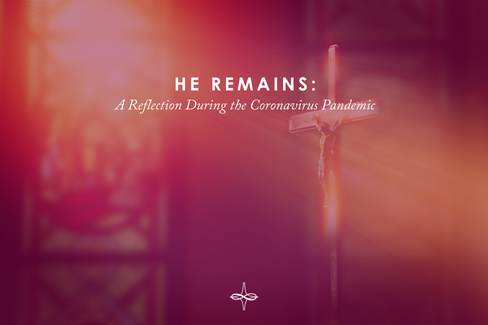

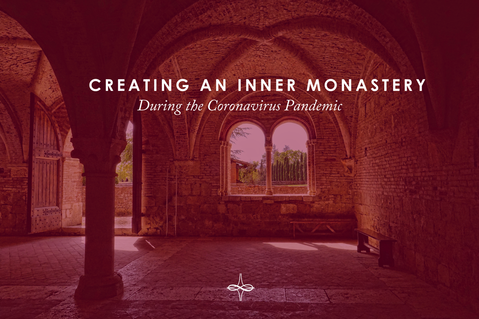



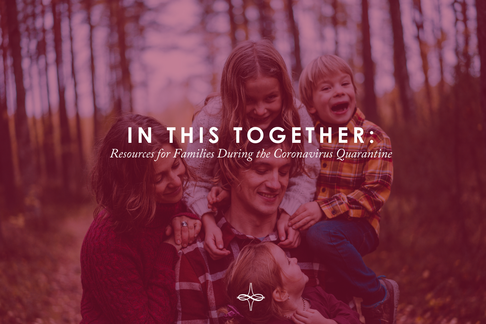

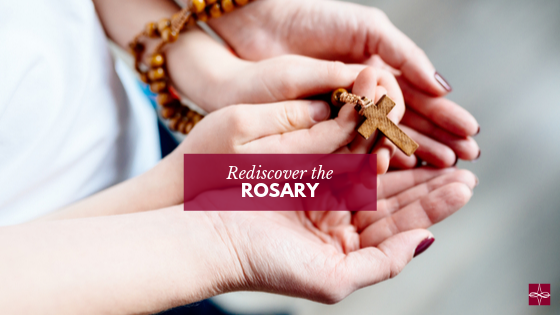

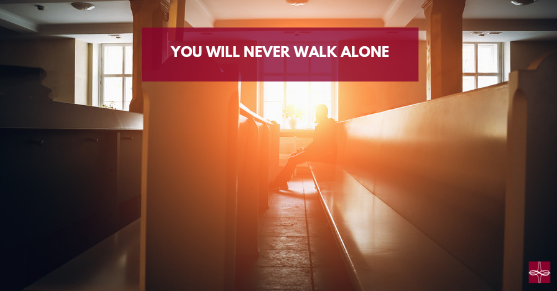

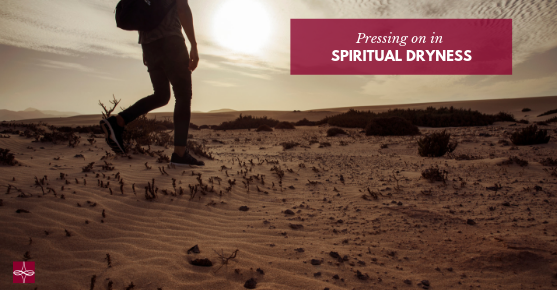

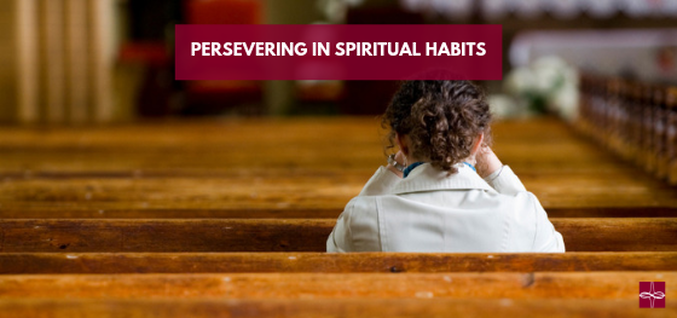

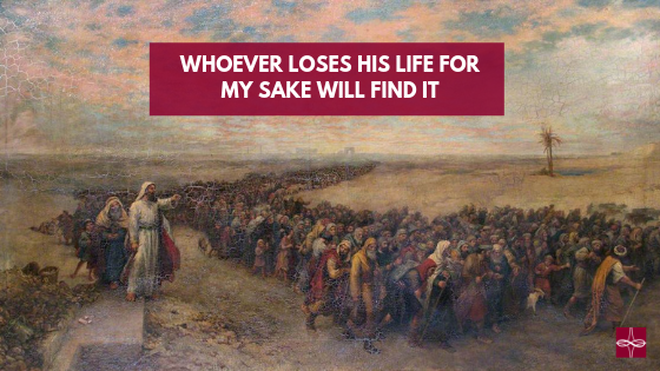


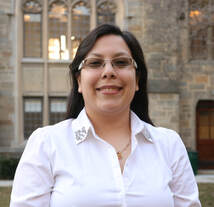







 RSS Feed
RSS Feed